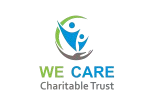Definition
Down syndrome (DS) is a genetic disorder caused by an extra copy of chromosome 21, resulting in intellectual and developmental delays.
Incidence
1 in 700 births (CDC, 2020)
Types
- Trisomy 21 (most common)
- Mosaicism
- Translocation
Characteristics
- Intellectual disability
- Delayed speech and language
- Physical features (e.g., facial structure, short stature)
- Increased risk for health issues (e.g., heart defects, vision problems)
- Variable severity
Causes/Risk Factors
- Advanced maternal age
- Family history
- Genetic mutations
Diagnosis
- Prenatal testing (amniocentesis, chorionic villus sampling)
- Postnatal diagnosis (karyotyping, genetic testing)
Developmental Milestones
- Infancy: delayed motor skills
- Toddlerhood: delayed language and social skills
- Childhood: cognitive and academic delays
- Adolescence: increased independence
Interventions
- Early intervention (OT, PT, speech)
- Special education
- Occupational therapy
- Physical therapy
- Speech therapy
Health Considerations
- Regular medical check-ups
- Hearing and vision screenings
- Dental care
- Nutrition and exercise guidance
Om Sai Child Development Center’s Approach
- Multidisciplinary team (Genetics, Pediatrics, OT, PT, Speech)
- Comprehensive assessment and diagnosis
- Individualized treatment plans
- Family-centered care and education
- Ongoing monitoring and adjustments
Strategies for Parents/Caregivers
- Early intervention and therapy
- Create a supportive environment
- Encourage independence
- Foster social interactions
- Stay informed and connected
Resources
- National Down Syndrome Society (NDSS)
- Down Syndrome International (DSI)
- World Down Syndrome Day (March 21)
By understanding and addressing Down syndrome, We provides comprehensive support to individuals and families, promoting inclusive and empowering environments.
